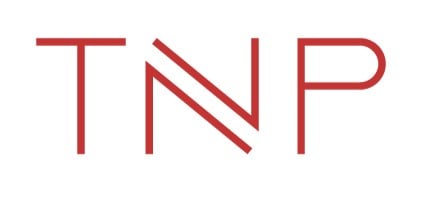

Legal and compliance manager | International Breweries, a part of AB InBev



Deborah O. Patrick-Akhaba
Legal and compliance manager | International Breweries, a part of AB InBev
Team size: 12
How do you see the general counsel role evolving in Nigeria over the next five-ten years?
It is important to understand first and foremost that a general counsel’s role in an organisation is spread across general legal practice, wearing several hats as the business demands and as such, anyone occupying such position must have the ability to connect, collaborate and co-exist with various business partners and stakeholders, especially with the growing demands of technology and evolving business trends.
Because a general counsel is regularly expected to advise on multiple matters that may be grounded in law but extend to other business areas, it is no longer expedient to just be a trusted legal advisor without being a trusted business partner. A general counsel must now develop in such a way that they are seen to be knowledgeable in areas of the organisation and brand reputation management. They must now begin to understand environmental, social and governance (ESG) issues alongside evolving public expectations and have the ability to partner with law firms who are able to provide a more robust assistance and legal expertise. With so many roles to play and with a potential minefield of risks, the general counsel of today and the near future must offer more than just legal expertise to the companies they work with and provide fast, smart, and pragmatic solutions. They must start to think like business owners having strategic management skills, financial acumen, technical proficiency with AI tools and big picture vision to give their organisation a true competitive advantage.
How important is choosing to work with external lawyers who align with your company’s values? Are you likely to reconsider what firms you work with based on this?
It is crucial to choose the right team of external lawyers to work with, especially if they align with your company’s values of not taking shortcuts and managing costs efficiently. Just like every other relationship where you ensure that you have the right person you can trust, so also is the external counsel team because as a general counsel, you not only deal with yourself, but you deal with your company’s executives and board members who are all part of the management team and are looking at you to always deliver ultimate value. Your choice of external counsel team can either reflect positively or negatively to your business and so you must be tactical in choosing who you align yourself with on behalf of the business. It makes your life easier if they align with your values because they will always be able to do things that are in the best interest of the company without thinking twice about it or being cajoled. Our legal partners must also demonstrate the ability to solve problems quickly and precisely, proactively communicate, be cost efficient and effective, and provide pragmatic solutions to ensure a long-lasting business relationship. Of course, if my external counsel team do not align with my business code of conducts and values, my ethics team would require that I reconsider partnering with such a firm.
Looking forward, what technological advancements do you feel will impact the role of in-house legal teams in the future the most? Which have you found most useful in your legal team?
In-house legal teams are continually responsible for ensuring that businesses they work with operate at minimal risk regarding issues of compliance with all relevant regulations and laws. As such, in-house legal teams are prone to encounter foreseen and unforeseen business hurdles, advising, soliciting, and guiding on multiple legal matters across a wide range of business areas. We see situations where these counsel experience repetitive routine tasks (compliance tracker checks, contract generation, debt recovery mechanisms, litigation tracker, Board and stakeholder management, and documentation management) which then makes it imperative and critical for any in-house counsel to ensure that these routine tasks are properly serviced and attended to whilst still making out some free room for any emergencies that may occur in the business requiring their legal expertise. It is therefore for this reason that legal technological advancements are relevant and impactful to reduce potential burnout, make them work smarter and more efficiently whilst still adding value. Legal technological advancements such as legal research tools, contract management systems (CMS), due diligence management systems (Exiger), ethics and compliance solutions (Convercent), corporate governance and board solutions (Diligent) and NextCounsel (legal documentation management system) will have major impacts in future in-house legal teams because of their efficiency and effectiveness in providing smart work. I have also found these to be very useful for my legal team in the past year and we are continually looking out for more technological solutions that will be helpful in the fields of debt recovery and general legal practice.